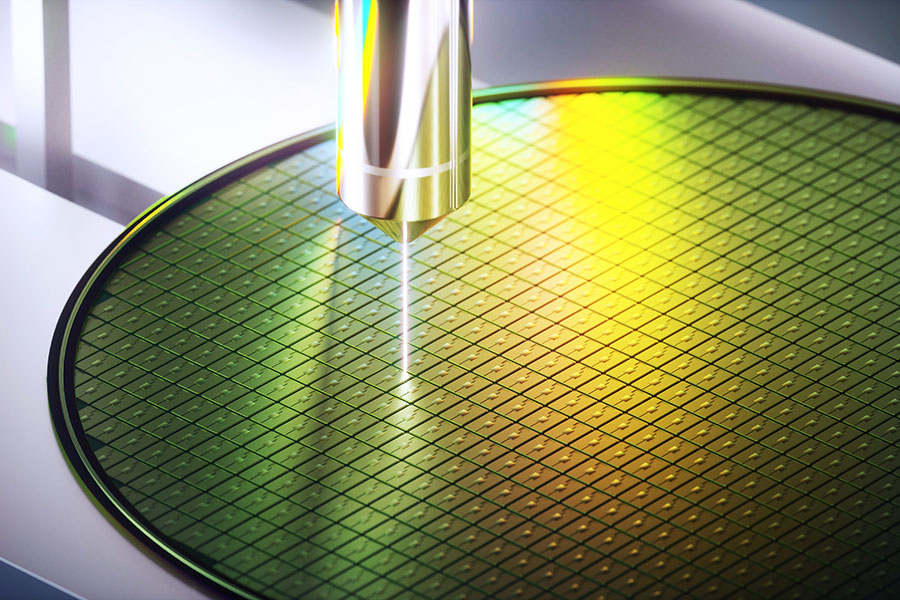Analyst: Samsung is unlikely to follow Intel's lead in splitting its wafer foundry business
Intel's ongoing plan to divest its wafer foundry business is both an opportunity and a risk, and is expected to become an important reference for Samsung Electronics to formulate future strategies. However, analysts believe that the possibility of Samsung imitating Intel is very small.
In an internal letter, Intel CEO Pat Kissinger announced that the company will spin off its wafer foundry and chip design businesses. By separating these two main departments, Intel hopes to enable its wafer foundry business to independently raise funds and alleviate customers' concerns about neutrality.
According to reports, as IDMs (Vertical Integrated Manufacturing), both Intel and Samsung have difficulty obtaining external wafer foundry customers. Unlike TSMC, which only produces chips for customers without designing its own chips, Intel is both a manufacturer and a chip designer (especially for CPUs), which has raised concerns about potential technology leaks. Intel's decision to divest its wafer foundry business highlights its attempt to emphasize independence, positioning it as a key differentiator from Samsung's wafer foundry business.
In the Korean semiconductor industry, some people believe that Samsung should also split its foundry business, but this will be a difficult move. The main challenge is that relying solely on OEM business may not generate enough revenue to support the required massive investment. If Samsung's OEM business weakens, it may repeat AMD's mistakes.
AMD, which had previously been involved in the OEM business, divested its OEM business in 2009 after suffering serious losses and established Gexin. Afterwards, AMD reduced its stake in Gexin, and by 2021, Abu Dhabi's sovereign wealth fund Mubadala had acquired the remaining shares, completing the divestment completely.
Intel, which re entered the OEM market in 2021, has invested approximately $25 billion in the past two years. However, the company has not yet gained a significant customer base, with a cumulative loss of $5.3 billion in the first half of 2024. Some analysts believe that although the spin off can help Intel raise funds, there is also a risk of dilution of equity, which may ultimately make the company a pure customer of an independent foundry entity, similar to the relationship between AMD and Gexin.
Samsung's OEM also faces similar challenges. The company has made significant investments in technology and production capacity to compete in the advanced technology market. However, it has not yet achieved profitability and is expected to incur annual losses in the trillions of Korean won. Therefore, South Korean industry insiders believe that Samsung cannot rely solely on its OEM business to pay for investment costs. It will require continuous support from the storage and mobility departments, so it is unlikely to be spun off in the short term.
In addition, Samsung's various business units, such as storage, system LSI, mobile experience MX, and consumer electronics, work closely together in terms of business and technology. Especially the system LSI department, which provides stable revenue for Samsung's OEM business, makes business separation more difficult.
Industry analysts say that large chip design companies such as NVIDIA are seeking to reduce their dependence on TSMC. In order to gain market share in advanced manufacturing technology, Samsung must seize the opportunity of Intel's restructuring of its OEM business.
According to reports, as IDMs (Vertical Integrated Manufacturing), both Intel and Samsung have difficulty obtaining external wafer foundry customers. Unlike TSMC, which only produces chips for customers without designing its own chips, Intel is both a manufacturer and a chip designer (especially for CPUs), which has raised concerns about potential technology leaks. Intel's decision to divest its wafer foundry business highlights its attempt to emphasize independence, positioning it as a key differentiator from Samsung's wafer foundry business.
In the Korean semiconductor industry, some people believe that Samsung should also split its foundry business, but this will be a difficult move. The main challenge is that relying solely on OEM business may not generate enough revenue to support the required massive investment. If Samsung's OEM business weakens, it may repeat AMD's mistakes.
AMD, which had previously been involved in the OEM business, divested its OEM business in 2009 after suffering serious losses and established Gexin. Afterwards, AMD reduced its stake in Gexin, and by 2021, Abu Dhabi's sovereign wealth fund Mubadala had acquired the remaining shares, completing the divestment completely.
Intel, which re entered the OEM market in 2021, has invested approximately $25 billion in the past two years. However, the company has not yet gained a significant customer base, with a cumulative loss of $5.3 billion in the first half of 2024. Some analysts believe that although the spin off can help Intel raise funds, there is also a risk of dilution of equity, which may ultimately make the company a pure customer of an independent foundry entity, similar to the relationship between AMD and Gexin.
Samsung's OEM also faces similar challenges. The company has made significant investments in technology and production capacity to compete in the advanced technology market. However, it has not yet achieved profitability and is expected to incur annual losses in the trillions of Korean won. Therefore, South Korean industry insiders believe that Samsung cannot rely solely on its OEM business to pay for investment costs. It will require continuous support from the storage and mobility departments, so it is unlikely to be spun off in the short term.
In addition, Samsung's various business units, such as storage, system LSI, mobile experience MX, and consumer electronics, work closely together in terms of business and technology. Especially the system LSI department, which provides stable revenue for Samsung's OEM business, makes business separation more difficult.
Industry analysts say that large chip design companies such as NVIDIA are seeking to reduce their dependence on TSMC. In order to gain market share in advanced manufacturing technology, Samsung must seize the opportunity of Intel's restructuring of its OEM business.